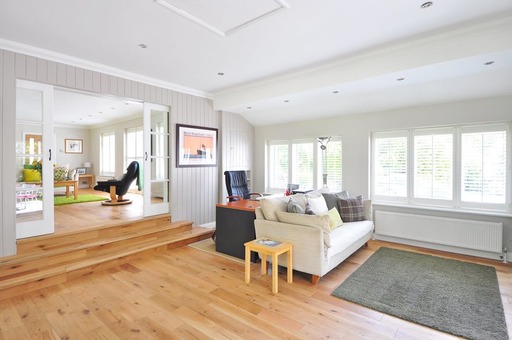What’s that SMELL?! Remove Pet Odors in 6 Easy Steps!
We’ve all been in one of those homes. Whether you’re a cat-lover, a dog-person, or have no interest in pets of any kind, we’ve all been in a home that smells like “pet.” It’s a distinct smell and it’s never good. Sometimes it’s a noxious ammonia smell from an unkempt litter box, other times it’s the smell of feet and garbage coming from a gassy Labrador. In either event, it makes you not want to stay, and most of the time the homeowner has no idea their home is that house.
With the rate of pet ownership on the rise, it’s likely that the next time you move, you will be buying or selling a home that has had pets. Depending on the type, number, and behaviors of the pets (and their owners!) these homes can come with their unique scents.
If you’re planning to list your home or you’ve just moved into a new one, you’ll want to address this right away. A new owner may choose to replace flooring such as carpets that hold stains and odors, but if you’re renting or selling it simply doesn’t make sense to do that. Follow these tips to tame the smells and remove pet stains.
Find out where the smell comes from
Because you might not be sure exactly what is causing the smell, when it happened, or even where it is, you may have to do some detective work.
To find urine stains, you can use a black-light. Feline urine glows very brightly because of the high levels of phosphorus, but canine urine will also appear. These can be purchased online or at most big box stores for relatively cheap and will make your cleaning process go much faster.
To remove the smell:
Once you’ve identified the areas you need to target, gather your supplies. The basics you’ll need will be baking soda, water, distilled white vinegar, paper towel, and if you’ve got some really tough stains to treat, an enzymatic cleaner.
To remove stain dried stains:
- Combine baking soda and water to form a paste
- Apply paste to the stain area generously. Cover with paper towel (or newspaper or upside-down laundry basket. Just keep kids and pets away) and let it dry.
- Once dry, spray or pour enough vinegar over the stain area. It will bubble and foam.
- Using a clean paper towel, press down on the stain to remove moisture.
- Repeat as necessary, no more than two times.
- Rinse with water and blot to absorb.
The vinegar smell may stay for a bit, but should dissipate after a couple of days. If this process does not lift the mess, use an enzymatic cleaner following the directions on the package. These cleaners are designed to break down and oxidize the chemicals in urine that cause stains and odors.
If the stains are really set in, you may need to rent a carpet cleaner to really get down in there. The professionals suggest not using steam, as the heat will set in the stain and smell, and it’s also recommended to not use the store-bought carpet cleaning chemicals as they can be dangerous for pets and ineffective for these stains. Instead, for these tough stains you’ll want to use a wet-vac with plain water and an enzymatic, pet-safe cleaner. Check out the clip below of Oprah on Live with Kelly & Michael to find out her favorite cleaner as well as tips for removing fresh pet stains!

















